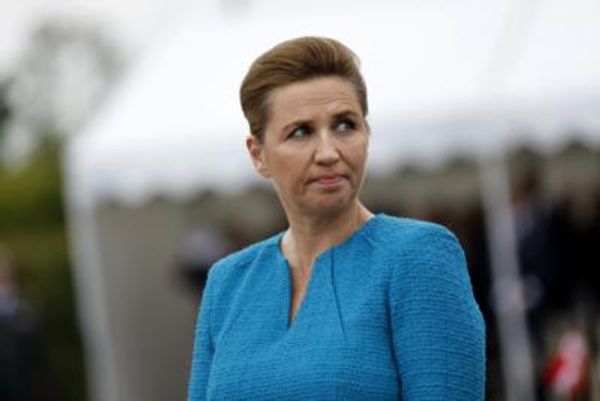
Summary of the day
Although Alberto Núñez Feijóo’s People’s party finished first in Spain’s July snap general election, it failed to win enough votes to form a government, taking 137 seats in Spain’s 350-seat congress.
Today, Feijóo officially failed to garner sufficient votes to become the country’s next prime minister. MPs voted by a margin of 172 in favour of his bid and 177 against, with one null vote.
Junts MP Eduard Pujol accidentally voted in favour of Feijóo.
Ahead of the vote, Feijóo told MPs that “there is no possibility of triumph for any candidate – even if they become prime minister – because lies and deception bring no possible success.”
During the debate, socialist MP Óscar Puente told Feijóo he has had a month to change the focus of Spanish politics – “but you’ve squandered it”.
Marta Lois, spokesperson for the left-wing Sumar alliance, accused Feijóo of disrespecting congress and wasting everyone’s time.
Far-right Vox party leader Santiago Abascal said that “an amnesty is an assault – an attack on the Spanish people.”

“Now that this spectacle is over, it is time to work harder for the progressive government Spain deserves,” Sumar’s Yolanda Díaz wrote on social media following the vote.
Hoy termina la investidura fracasada del señor Feijóo.
— Yolanda Díaz (@Yolanda_Diaz_) September 29, 2023
Ahora que ha acabado este espectáculo, toca trabajar con más fuerza por el gobierno progresista que merece España. pic.twitter.com/lJuejjM9mr
Vox leader Santiago Abascal’s dire warnings about Spaniards defending themselves in the face of a possible amnesty (see here) have not gone unnoticed by the former Podemos leader and deputy prime minister, Pablo Iglesias.
“Abascal is wishing for a Reichstag fire,” he wrote on X, in a reference to the 1933 Berlin blaze that helped bring Hitler to power. “And, among the ashes, some media will talk about ‘tensions between Vox and democracy’.”
Iglesias has always made his feelings about the far-right party perfectly plain. Three years ago, he suggested Vox would like to see a coup d’état in Spain but lacked the courage to stage one, telling its MPs: “You’re not even fascists – you’re just parasites.”
Abascal está deseando quemar el Reichstag
— Pablo Iglesias 🔻{R} (@PabloIglesias) September 29, 2023
(y entre las cenizas habrá medios que hablen de "tensión entre Vox y la democracia") pic.twitter.com/CeFVjeRloz
Feijóo speaks out after loss
After failing to garner sufficient support to become prime minister, Alberto Núñez Feijóo vowed that his People’s party will govern one day.
The party is “at the service of the Spanish people to defend the values that the majority shares,” he said.
Los Grupos Parlamentarios del @ppopular, que son mayoritarios en las Cámaras, están al servicio de los españoles para defender los valores que comparte la mayoría.
— Alberto Núñez Feijóo (@NunezFeijoo) September 29, 2023
Más pronto que tarde lo haremos desde un Gobierno para todos. pic.twitter.com/dTLybKkrak
Spanish socialists are now celebrating the vote’s outcome
Feijóo no ha obtenido el respaldo del parlamento para hacer retroceder a España.
— patxilopez (@patxilopez) September 29, 2023
Los ciudadanos y ahora el Congreso han dicho NO a volver atrás. NO a la división. NO a las mentiras.
Es el momento de dejar de perder el tiempo y avanzar.
What’s next
No surprises at all then – except for the Junts MP Eduard Pujol accidentally voting yes to Alberto Núñez Feijóo’s investiture.
But what happens next? Put simply, the onus is now on Pedro Sánchez to cobble together the necessary support to mount his own bid for prime minister. The problem is the price the two main Catalan pro-independence parties ask in return for their support.
The amnesty sought by Carles Puigdemont is a massive ask politically and among voters, while a formally agreed referendum on Catalan independence is a red line for the socialists. We can expect days, if not weeks of negotiations and horse-trading as Sánchez tries to secure the support he needs.
Once the king has given his permission for Sánchez to try to form a government, the PSOE leader will give it a go. If he fails to form a government by 27 November, parliament will be dissolved and Spain will return to the polls in mid-January for its sixth general election in nine years.
Feijóo fails to win backing for top job
Spanish People’s party leader Alberto Núñez Feijóo has officially failed to garner sufficient votes to become the country’s next prime minister. MPs voted by a margin of 172 in favour of his bid and 177 against, with one null vote.
Junts MP Eduard Pujol accidentally voted in favour.

As we wait for results, harsh words from Alberto Núñez Feijóo about his rivals.
Si el PSOE quiere seguir adelante con esta degradación moral y política será su exclusiva responsabilidad.
— Alberto Núñez Feijóo (@NunezFeijoo) September 29, 2023
Yo no seré presidente a costa de la dignidad de mi país y de la igualdad de todos los españoles.#InvestiduraFeijóo https://t.co/CB7ntDAmLL
The vote is about to begin. The speaker, Francina Armengol, is explaining the oral vote: yes, no or abstention. Remember, only a simple majority - more yes votes than no - is needed.
Oskar Matute of the Basque pro-independence party EH Bildu has taken the PP and the Spanish right to task for a litany of historical and present-day offences, from murdering the poet Federico García Lorca to suppressing the Basque language under Francisco Franco and failing to protect the Doñana wetlands in Andalucía. He spoke in Basque and then in Spanish.
Addressing the chamber in Catalan - which has been permitted since the week before last – Teresa Jordà of the Catalan Republican Left (ERC) said her party’s votes will always be given in the service of “the interests of the Catalan people”.
She added that the possible amnesty must “open a phase of negotiations to definitively fix the conditions so that Catalonia can vote”.
Updated
Far-right Vox party leader Santiago Abascal also appeared to make a veiled threat at the end of his speech, saying: “An amnesty is an assault – an attack on the Spanish people.”
An amnesty, he added, is “an attack on the Spaniards who pay their fines religiously, on those who pay their taxes with or without complaint, an attack on those who obey laws even if they don’t like them. It’s also an attack on prisoners in jail for the various crimes they have committed”.
“ It’s an assault – and the Spanish people have a duty and a right to defend themselves. And they will, so don’t come crying afterwards,” he said.

Updated
Pedro Sánchez appeared to be in a good mood during his rival’s speech.

Updated
'You won’t be prime minister because you don’t have the votes', Sumar tells Feijóo
Marta Lois, spokesperson for the leftwing Sumar alliance, which is led by Spain’s acting labour minister and deputy prime minister Yolanda Díaz, has accused Alberto Núñez Feijóo of disrespecting congress and wasting everyone’s time.
“You’ve basically come here to lie to Spain and to yourself,” she told the PP leader.
“You’ve based your investiture on a big lie, saying you won’t be prime minister because of your principles. But the fact is that you won’t be prime minister because you don’t have the votes and you know it.”

Updated
'You’d be the bad guy in any novel, TV series or film' Absascal tells Sánchez
Far-right Vox’s leader, Santiago Abascal, has also decided not to beat around the bush in his appraisal of Pedro Sánchez and his track record as prime minister.
“There can be no greater act of corruption – no greater shamelessness in the eyes of the entire world – than one politician granting another politician an amnesty in return for his vote in order to stay in power,” he told MPs.
Then he turned to Sánchez, whom he called, “the most corrupt prime minister in the history of Spain, more corrupt than anyone else, from any party; he is the paradigm of political corruption”. Unsurprisingly, Abascal will be voting in support of Alberto Núñez Feijóo’s doomed candidacy.
“You’d be the bad guy in any novel, TV series or film,” he said.

Updated
People’s party leader Alberto Núñez Feijóo got a standing ovation from his political allies after delivering his speech today.

Updated
As expected, socialist MP Óscar Puente did not mince his words – or as the Spanish idiom has it, there are no hairs on his tongue.
“Mr Feijóo, you entered this chamber as leader of the opposition, and as the newspapers have it, you’ll leave it having become the leader of the opposition. But you’re not just that. You’re the leader of the opposition and a scourge! A scourge of who? Sánchez – who else could it be – the font of all evil!”
Puente told Feijóo he has had a month to change the focus of Spanish politics – “but you’ve squandered it”.
He also accused the PP of using King Felipe, who gave his blessing to Feijóo’s attempt to become PM, for his own political ends.
The accusation does not go down well with the PP.

Updated
Who is Alberto Núñez Feijóo?
“He’s a very restrained person when it comes to his personal reactions,” says a veteran adviser. “He doesn’t let himself get down when things don’t go well and he isn’t exultant when things go the way he wants them to.”
Catch up on this profile of the People’s party leader.
It’s now the PSOE’s turn and, as in first debate, the party has chosen the MP Óscar Puente to respond to Feijóo.
Puente, who served as the mayor of the city of Valladolid until he was ousted by a Vox/PP coalition despite finishing first in May’s municipal elections, pulled no punches in his last speech.
“Mr Feijóo, neither you nor I won the elections,” he told the PP leader.
“Look, in a parliamentary democracy, leading the party that wins the most votes doesn’t mean you won the election. In a parliamentary democracy, the one who wins is the one who can put together a government.”
Feijóo is wrapping up his speech, which was merely 10 minutes today – much shorter than Tuesday’s speech, which was 40 pages long.
He got a standing ovation from the PP benches.
In his speech, Feijóo implicitly acknowledged that his attempt to become Spain’s next prime minister had failed, saying that he and his party were prepared to offer an opposition “that represents all Spaniards”.
“I have tried - by sticking to my principles and my commitments and to the parties that have supported me - but I admit it’s likely I won’t be successful. Call it failure if you like, but there is no possibility of triumph for any candidate – even if they become prime minister – because lies and deception bring no possible success.”

Updated
Feijóo makes his last move
Alberto Núñez Feijóo, as expected, is trying to use the possible amnesty to make Pedro Sánchez squirm. In his address, he has just said: “An amnesty - yes or no? I say no. And you, Mr Sánchez?”
As he did at Sunday’s big rally in Madrid, Feijóo has once again accused Sánchez of “moral and political degradation” by entertaining the idea of an amnesty.

Updated
'If we have to go to an election, we’ll go to an election' Catalan socialist politician says
As mentioned in our earlier news story, the two main pro-independence Catalan parties, Junts and the Catalan Republican Left (ERC) are seeking to extract maximum gains in return for helping Pedro Sánchez and the socialists back into office.
Junts’s leader, the self-exiled former Catalan regional president Carles Puigdemont, has said there must be an amnesty for all those, like him, who are wanted by Spanish courts over their roles in the failed push for independence seven years ago.
But yesterday, Junts and the ERC ramped up the pressure still further, saying they would only back a Spanish government that laid the ground for a referendum on regional independence.
This is a red line for the PSOE, which indirectly said as much last night.
Salvador Illa, the former Spanish health minister who now leads the Catalan branch of the socialist party (PSC) has said there will be no negotiations “outside the constitution”, adding that the socialists are happy to fight another general election rather than cave to Junts and the ERC’s demands.
On Friday morning, he told the Catalan radio station RAC1:
“If we have to go to an election, we’ll go to an election and the people will decide.”
Catalan parties up the stakes
If, as expected, Alberto Núñez Feijóo’s bid fails today, the socialist leader and Spain’s acting prime minister, Pedro Sánchez, will then seek the king’s permission to attempt to form a government.
It will not be an easy task – not least in the court of public opinion.
While Sánchez can count on votes from his own party, from its partners in the leftwing Sumar alliance and from a handful of Basque and Catalan nationalist parties, he will also need to enlist the support of Junts, the hardline Catalan separatist party led by Carles Puigdemont.
The problem for Sánchez is that Puigdemont, who fled Spain to avoid arrest over his role in the unilateral and unlawful push for independence six years ago, has insisted his support will be conditional on the granting of amnesty to him and hundreds of others involved in the attempted secession.
Sánchez’s refusal to rule out such amnesty has proved deeply controversial.
On Thursday, Junts and the more moderate Catalan Republican Left [ERC] party attempted to ramp up the pressure on the PSOE still further, saying they would not support a central government that did not “undertake to work to bring about the conditions for the holding of a referendum [on regional independence]”.
The socialists, however, have repeatedly ruled out such a referendum and reminded Junts and the ERC of their position in a statement on Thursday evening.
“Dialogue must serve as a means to overcome division and not as a means to deepen the rupture and the discord that has generated so much tension in Catalonia and in the rest of Spain,” the PSOE said in the joint communiqué with its Catalan branch.
“There is no possible progress down that path. The path [to take] is that of coexistence and cohesion, of understanding, and of the social and economic progress of Catalonia and the rest of Spain – always within the bounds of the constitution.”
The amnesty issue has helped Feijóo recover his standing in his party and stave off possible leadership challenges amid internal disappointment over the July result.
Read the full story here.

Updated
Alberto Núñez Feijóo outside parliament today, ahead of a key vote on his future. The People’s party leader is set to lose his bid to become prime minister.

Updated
Alberto Núñez Feijóo again asks Spanish MPs to back him for PM
Alberto Núñez Feijóo, the leader of Spain’s conservative People’s party (PP), will conclude his all but doomed attempt to win power today when he once again asks MPs to back him as the next prime minister despite lacking the necessary votes in congress.
Although the PP finished first in July’s snap general election, it failed to win enough votes to form a government, taking 137 seats in Spain’s 350-seat congress, and scored a far less emphatic win over the ruling Spanish Socialist Workers party (PSOE) than had been expected.
Despite knowing he did not have the numbers to reach the absolute majority threshold of 176 seats – even with the support of the far-right Vox party and two smaller groupings – Feijóo received King Felipe’s blessing to attempt an investiture this week.
As predicted, he lost the first vote on Wednesday by 172 votes to 178, falling four votes short of the absolute majority he needed. Today’s vote, which requires only a simple majority – more yes votes than no votes – seems equally unlikely to put Feijóo in the Moncloa Palace.
If, as expected, Feijóo’s bid fails, the socialist leader and acting prime minister, Pedro Sánchez, will then seek the king’s permission to attempt to form a government.
Read the full story here.

Updated
Welcome to the blog
Good morning and welcome back to the Europe live blog.
Today we will be looking at the latest in Spanish politics, as the country’s congress prepares to vote on Alberto Núñez Feijóo’s (almost certainly doomed) bid to become prime minister.
Feijóo’s conservative People’s party (PP) got the most votes in Spain’s July snap election, but failed to secure sufficient support to form a government.
Are you a reader in Spain following the vote? Send your comments: lili.bayer@theguardian.com.

Spain’s opposition People’s Party leader Alberto Núñez Feijóo looks on in parliament on the day of the investiture debate in Madrid, Spain Photograph: Susana Vera/Reuters
Updated







